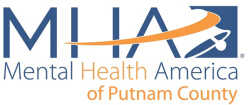Sleep awareness noted by Mental Health America

Mental Health American of Putnam County wants you to know that March was National Sleep Awareness Month and it’s not too late to examine its importance.
Who isn’t aware of sleep and the fact that we need it? Well, probably no one. But you might be surprised at how important sleep is for us and how much difference it can make in our lives – both young and old. Mental Health American of Putnam County wants you to know the facts about this important subject as we note that March was National Sleep Awareness Month.
Babies, children and teens need significantly more sleep than adults. Seven to nine hours of sleep is the recommendation for adults. For children and teens, it varies according to the age. (Check out The Sleep Foundation or WebMD for specifics.) We all have times we can’t sleep for one reason or another, or don’t have time to get what we need. But our bodies can feel the effects of too little sleep in a surprisingly short amount of time. It takes as little as four days. Let’s take a look at the negative impact this can have on our health … both mental and physical.
According to Harvard Medical School, a lack of sleep over a long term can have serious health consequences, including diabetes, heart disease, obesity, hypertension and an impaired immune system. Short-term consequences can be a lot more obvious and immediate.
Take note if you recognize any of these in yourself or your children or anyone else around you. Too little sleep can cause:
• Irritability – Do you feel overwhelmed so even the smallest thing can make you snap?
• Fatigue and depression – Have you lost your enthusiasm, self-esteem, or joy for life?
• Emotions out of control – Do small things trigger big responses?
• Loss of focus – Do you find it hard to focus? Are you less alert? Are your thoughts and actions erratic?
• Memory retention and recollection -- Do your struggle with memory problems?;
• Lower productivity – Are you accomplishing less than what you should?
• Anxiety – do you worry and fret to the point where it affects your daily life?
Sleepy brains have to work harder just to make ordinary plans and decisions. Our long- and short-term memories suffer. We tend to take more risks. Our reaction times – mentally and physically – slow down. We can be moody and emotionally volatile with too little sleep.
Children can exhibit some of the same symptoms when they are getting too little sleep. Or they can respond very differently. For instance, adults may “wind down” as they get tired but children may “wind up” when they are over tired. Sleepiness can even look like ADHD.
On the other hand, adequate sleep has lots of positives. It will boost learning and increase attention spans, help us fight off sickness and reduce injuries, affect weight and promote growth in children.
Sleep should be a priority for children as well as adults just as much as a healthy diet and exercise. With any research at all, you will find that recommendations for better sleep apply to any age. Some of those are: cut off screen time – TV, tablets, phones, computers – an hour or more before bedtime; establish a routine; set a bedtime and stick with it; eliminate caffeine, especially for children. Sleep is a way our body repairs and replenishes itself. Give it a fair chance to do that and see what happens.
For more information about mental wellness topics and free mental wellness screenings, try the Mental Health America of Putnam County Facebook page at fb.me/mhaopcindiana or MHA’s national website at mentalhealthamerica.net.
